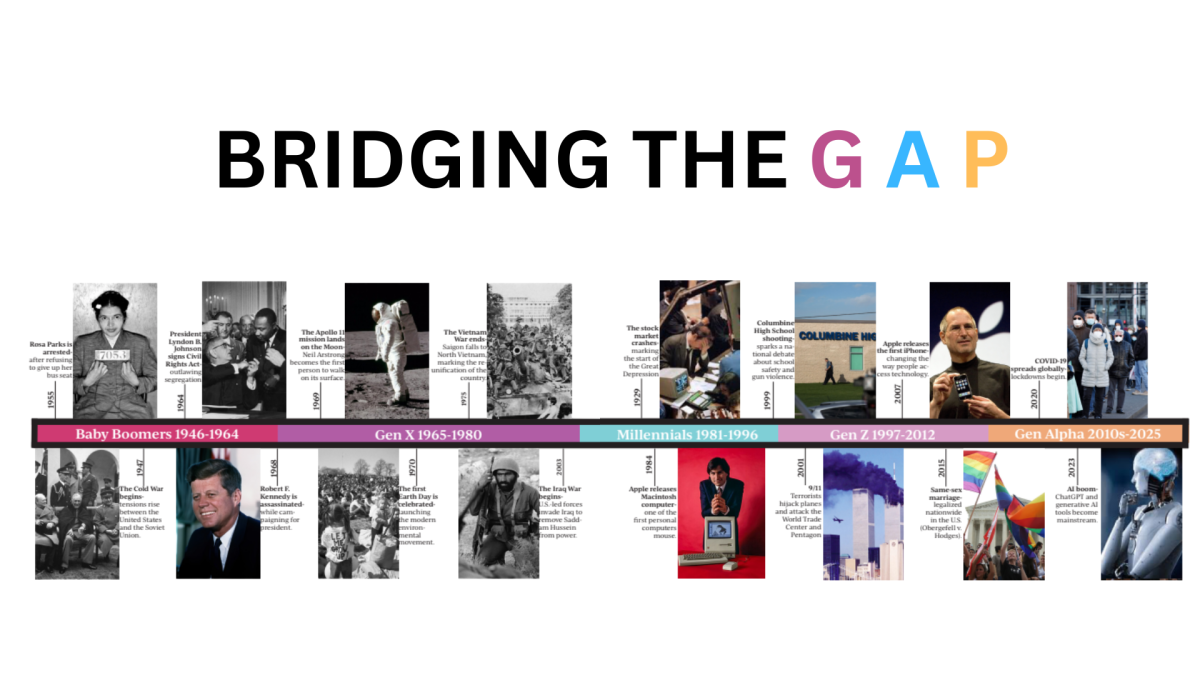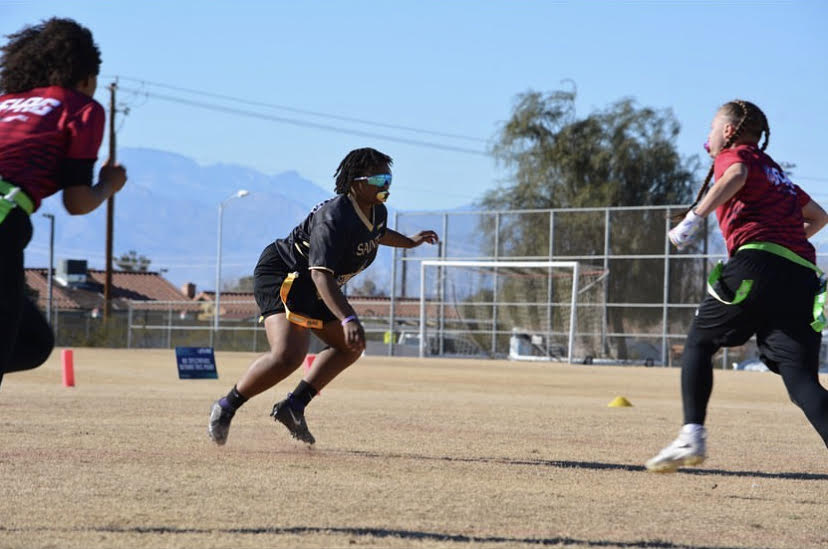Almost everyone has seen a marching band performance at some point. While most enjoy the music and drill shapes made by the band, few stop to consider the drum majors standing on the platforms above them, conducting and keeping the show from falling apart.
It might seem like they play an insignificant part, but according to senior drum major Olivia Ortiz, their duties extend far beyond conducting.
“Most of the responsibilities of a drum major are behind-the-scenes work that helps the marching season run,” Ortiz said. “We carry and set up the equipment used for rehearsal, cut out coordinate sheets, lead leadership meetings, help meditate quarrels in sections, and help marchers reach their top potential on the field.”
It’s a big step going from marching on the field to conducting in front of the entire band, and with promotion comes with responsibility.
“Being a drum major is definitely an experience,” Ortiz said. “You see a completely different view of the band, literally. It can be nerve-wracking knowing that if you mess up, you could cause the band to get off tempo.”
There are many differences between being a marcher and a drum major. Even though there are a lot of perks to being a drum major, Ortiz admits that sometimes she misses being out on the field.
“Now that I am conducting instead of marching, I can truly listen to the band when we perform,” Ortiz said. “It sounds so different to hear it from a listener’s standpoint instead of as a side-by-side contributor.”
As the marching band season comes to a close, the drum majors will soon rejoin the band in playing music for their concert season.
“Although I love conducting, I still miss playing the music the most,” Ortiz said. “When your hands are going a strict tempo, it is very hard to show emotion through your music directly; you must make the band feel your emotion so they, too, can show theirs. And of course, at the end of a long run-through, it is my arms that ache, not my feet.”











